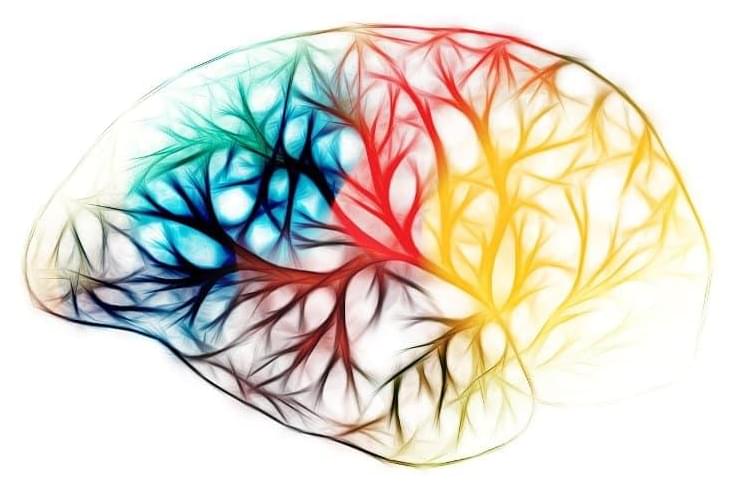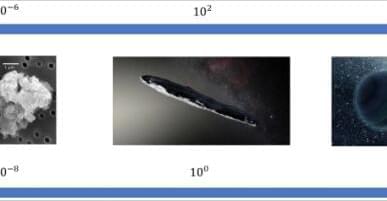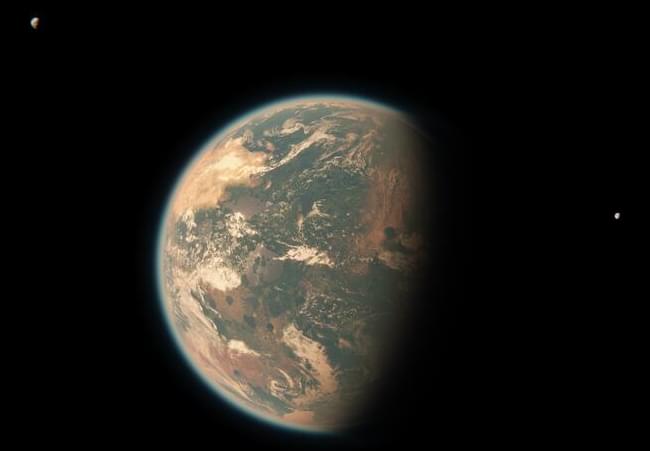Year 2020 face_with_colon_three
The rigorously proven No Free Lunch theorem shows that physicists will always be needed to determine the correct questions.


Year 2020 o.o!
Explorations into the nature of reality have been undertaken across the ages, and in the contemporary world, disparate tools, from gedanken experiments [1–4], experimental consistency checks [5,6] to machine learning and artificial intelligence are being used to illuminate the fundamental layers of reality [7]. A theory of everything, a grand unified theory of physics and nature, has been elusive for the world of Physics. While unifying various forces and interactions in nature, starting from the unification of electricity and magnetism in James Clerk Maxwell’s seminal work A Treatise on Electricity and Magnetism [8] to the electroweak unification by Weinberg-Salam-Glashow [9–11] and research in the direction of establishing the Standard Model including the QCD sector by Murray Gell-Mann and Richard Feynman [12,13], has seen developments in a slow but surefooted manner, we now have a few candidate theories of everything, primary among which is String Theory [14]. Unfortunately, we are still some way off from establishing various areas of the theory in an empirical manner. Chief among this is the concept of supersymmetry [15], which is an important part of String Theory. There were no evidences found for supersymmetry in the first run of the Large Hadron Collider [16]. When the Large Hadron Collider discovered the Higgs Boson in 2011-12 [17–19], there were results that were problematic for the Minimum Supersymmetric Model (MSSM), since the value of the mass of the Higgs Boson at 125 GeV is relatively large for the model and could only be attained with large radiative loop corrections from top squarks that many theoreticians considered to be ‘unnatural’ [20]. In the absence of experiments that can test certain frontiers of Physics, particularly due to energy constraints particularly at the smallest of scales, the importance of simulations and computational research cannot be underplayed. Gone are the days when Isaac Newton purportedly could sit below an apple tree and infer the concept of classical gravity from an apple that had fallen on his head. In today’s age, we have increasing levels of computational inputs and power that factor in when considering avenues of new research in Physics. For instance, M-Theory, introduced by Edward Witten in 1995 [21], is a promising approach to a unified model of Physics that includes quantum gravity. It extends the formalism of String Theory. There have been computational tools relating to machine learning that have lately been used for solving M-Theory geometries [22]. TensorFlow, a computing platform normally used for machine learning, helped in finding 194 equilibrium solutions for one particular type of M-Theory spacetime geometries [23–25].
Artificial intelligence has been one of the primary areas of interest in computational pursuits around Physics research. In 2020, Matsubara Takashi (Osaka University) and Yaguchi Takaharu (Kobe University), along with their research group, were successful in developing technology that could simulate phenomena for which we do not have the detailed formula or mechanism, using artificial intelligence [26]. The underlying step here is the creation of a model from observational data, constrained by the model being consistent and faithful to the laws of Physics. In this pursuit, the researchers utilized digital calculus as well as geometrical approach, such as those of Riemannian geometry and symplectic geometry.

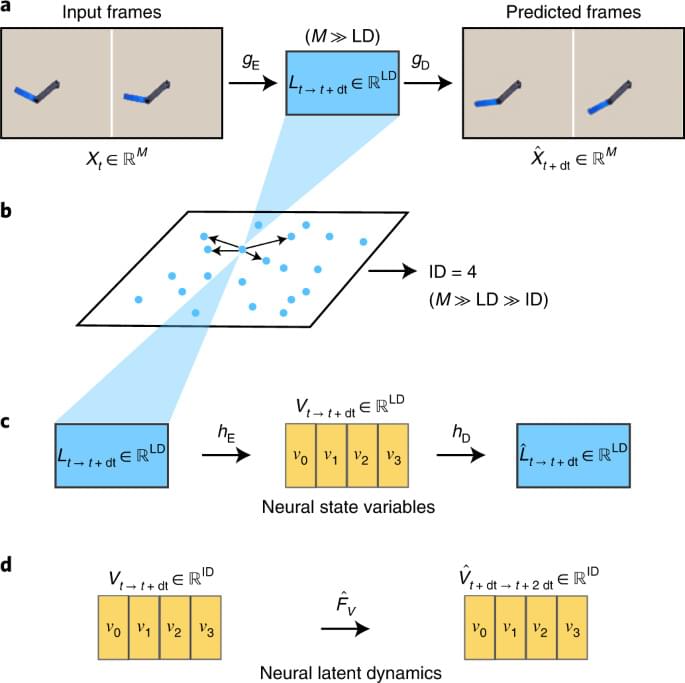
Year 2022 What they find is a new type of physics generated by their artificial intelligence.
The determination of state variables to describe physical systems is a challenging task. A data-driven approach is proposed to automatically identify state variables for unknown systems from high-dimensional observational data.

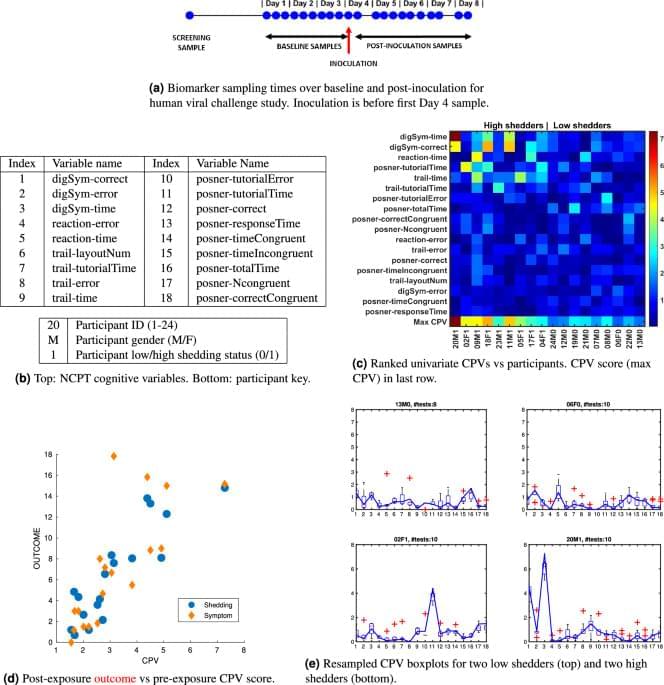
While shedding and symptom may not be closely linked in general, we found total shedding and symptom severity to be highly correlated (Pearson 0.81, Supplementary Fig. S1). Furthermore, with one exception, low shedding implied low symptom severity and vice versa. Thus associations found between shedding and pre-inoculation biomarkers like the CPV are also present in symptom severity, although to a lesser degree. Therefore in the rest of this section we report associations for the less noisy shedding measurements. The total variance explained (\(R^2\) ) by a linear model relating CPV score to shedding titers is \(R^2=0.77\) (ratio of residual variance of linear regression to variance of titers). Furthermore, a logistic regression of total shedding onto the CPV score yielded a perfect discriminant between high and low shedders, respectively defined as those whose total shedding is below versus above the population median.
The correlation between shedding titers and CPV scores is robust to reductions in the number of NCPT variables composing the score. In fact the correlation between shedding and CPV increases to greater than 0.9 when only 6 NCPT measures are incorporated: digSym-time, digSym-correct, reaction-time, posner-tutorialTime, trail-time and trail-tutorialTime. Furthermore, the CVP score incorporating only the three basic NCPT measures digSym-time, digSym-correct, trail-time achieves a correlation level of approximately 0.7 (Fig. S2). We find that adding a fourth basic NCPT variable reaction time to the CPV score computation does not appreciably affect this level of correlation. On the other hand, replacing replacing either digSym-time or digSym-correct with posner-tutorialTime produces an increase in correlation to a level greater than 0.85.
To illustrate the role of the 18 individual NCPT variables in the CPV, we plot in Fig. 1e the univariate CPV scores for the two lowest shedding and the two highest shedding participants. This figure is extracted from Fig. S3 in the Supplementary that shows the sequence of univariate CPV scores for all 18 study participants. Superimposed on the plot of these variables is a boxplot indicating score sensitivity to session perturbation, determined by leave-one-out analysis where the univariate CPV was recomputed after successively leaving a single NCPT session out of each participant’s sequence (sans screening session). Figure 1e clearly shows that certain NCPT variables have significantly higher variability for the high shedders (lower two panels) than for the low shedders (top two panels). Note that the NCPT variable with highest variability (variable achieving peak score in each panel of Fig. 1e) differs across study participants.
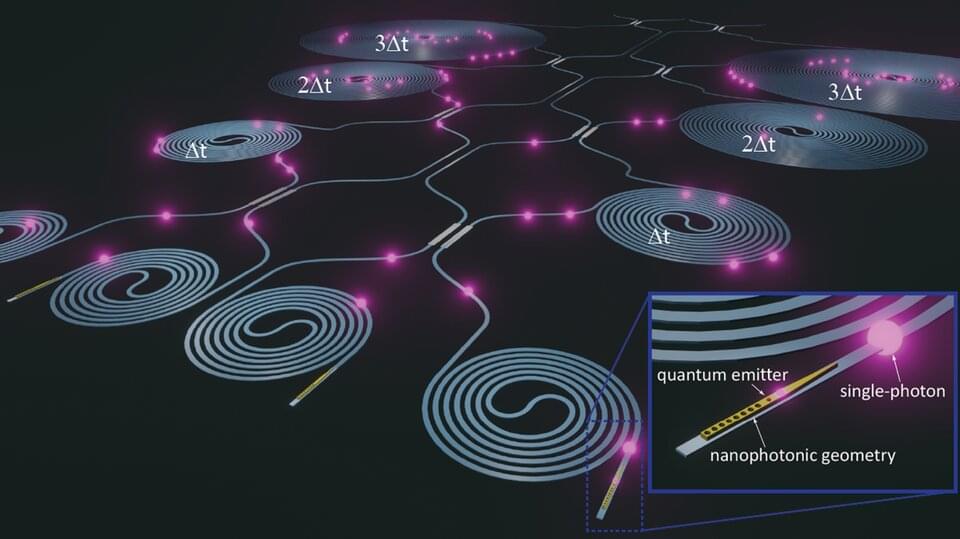
The ability to transmit and manipulate, with minimal loss, the smallest unit of light—the photon—plays a pivotal role in optical communications as well as designs for quantum computers that would use light rather than electric charges to store and carry information.
Now, researchers at the National Institute of Standards and Technology (NIST) and their colleagues have connected, on a single microchip, quantum dots—artificial atoms that generate individual photons rapidly and on-demand when illuminated by a laser—with miniature circuits that can guide the light without significant loss of intensity.
To create the ultra-low-loss circuits, the researchers fabricated silicon-nitride waveguides—the channels through which the photons traveled—and buried them in silicon dioxide. The channels were wide but shallow, a geometry that reduced the likelihood that photons would scatter out of the waveguides. Encapsulating the waveguides in silicon dioxide also helped to reduce scattering.
